Endpoint Protection and Management: Safeguarding Your Business with MDR, Privacy, and Security Compliance
In today’s digital world, cybersecurity is a non-negotiable priority for businesses of all sizes. From large enterprises to small businesses, safeguarding your network and data from malicious attacks is crucial to maintaining privacy, trust, and compliance with industry standards. One of the most critical aspects of cybersecurity is endpoint protection and management. This blog explores how Managed Detection and Response (MDR), along with privacy and security compliance standards such as PCI, SOC 2, ISMS, and HIPAA, can help businesses protect sensitive information and ensure regulatory compliance.
4/28/20254 min read


1. What Is Endpoint Protection and Management?
Endpoint protection refers to the security measures put in place to protect the various devices (endpoints) that connect to a network, such as laptops, smartphones, desktops, tablets, and other connected devices. Each of these endpoints is a potential entry point for cyber threats like malware, ransomware, or data breaches.
Endpoint management involves the oversight and maintenance of these devices. This includes monitoring their security posture, ensuring that they are up to date with the latest security patches, and providing them with necessary tools to defend against cyber threats. Endpoint protection solutions are crucial for organizations because they are the first line of defense against many common types of cyberattacks.
2. What Is Managed Detection and Response (MDR)?
MDR is an outsourced cybersecurity service that provides 24/7 monitoring, detection, and response to security threats on an organization’s endpoints, networks, and systems. MDR services are designed to provide organizations with advanced protection against cyber threats that might bypass traditional security tools.
MDR goes beyond traditional endpoint protection by offering:
Continuous Monitoring: Security professionals monitor the environment 24/7, providing real-time detection and mitigation of threats.
Threat Detection and Response: Advanced algorithms and threat intelligence are used to identify threats, with the ability to take immediate action to contain and remediate them.
Incident Management: In the event of a breach or attack, an MDR service provider will quickly analyze the situation, contain the threat, and recover the affected systems.
Advanced Security Tools: MDR solutions often use machine learning, artificial intelligence (AI), and behavioral analysis to detect unknown or advanced persistent threats that are not always recognized by traditional antivirus or endpoint security solutions.
MDR is essential for businesses that want robust, continuous protection but lack the resources or expertise to manage security in-house. It offers the advantage of cutting-edge technology and expert response capabilities, ensuring that your endpoints remain secure even against the most sophisticated cyber threats.
3. Why Endpoint Protection Matters for Compliance
Achieving compliance with security and privacy standards like PCI DSS, SOC 2, ISMS, HIPAA, and others requires strong endpoint protection. These frameworks often mandate that sensitive information, whether it’s customer data, payment information, or healthcare records, must be safeguarded against unauthorized access, breaches, and cyberattacks. Let’s explore the specific requirements for endpoint protection under some of these compliance standards:
PCI DSS (Payment Card Industry Data Security Standard)
PCI DSS sets security requirements for businesses that handle credit card transactions, ensuring that sensitive payment card information is protected. Endpoint security is crucial for PCI DSS compliance because:
Access Control: PCI DSS mandates that only authorized personnel can access cardholder data. Endpoint protection solutions can enforce strict access controls to prevent unauthorized users from accessing payment systems.
Encryption: PCI DSS requires that payment card data be encrypted at rest and in transit. Endpoint security ensures that encryption is applied and maintained on all devices accessing payment data.
Monitoring: Real-time monitoring and logging, provided by MDR services, help meet PCI DSS requirements for detecting and responding to unauthorized access or suspicious activity.
SOC 2 (System and Organization Controls 2)
SOC 2 is a standard used to assess how well a service organization conducts its operations, with a focus on five key principles: security, availability, processing integrity, confidentiality, and privacy. Endpoint protection plays a significant role in SOC 2 compliance:
Security Controls: SOC 2 requires that organizations implement controls to protect systems and data. Endpoint management tools ensure that devices are compliant with these controls by enforcing policies like password protection, encryption, and two-factor authentication.
Incident Response: SOC 2 requires an incident response plan in case of a data breach or security incident. MDR solutions help organizations quickly detect, respond to, and recover from security incidents.
ISMS (Information Security Management System)
The ISO 27001 standard, which is part of the ISMS framework, requires businesses to implement an information security management system that covers all aspects of data protection. Endpoint protection aligns with ISMS by:
Risk Assessment: Endpoint protection tools help assess the risks associated with various devices and ensure that risks are minimized.
Incident Management: ISMS requires a documented procedure for handling security incidents. MDR services provide real-time alerts and response capabilities to address incidents as they arise.
HIPAA (Health Insurance Portability and Accountability Act)
HIPAA mandates strict privacy and security standards for healthcare organizations that handle patient information (PHI). Endpoint protection is critical for HIPAA compliance because:
Data Encryption: HIPAA requires encryption of PHI both in transit and at rest. Endpoint security solutions ensure that all devices accessing PHI are encrypted, reducing the risk of data breaches.
Access Controls: HIPAA mandates that only authorized personnel should have access to PHI. Endpoint management ensures that access controls are applied and monitored across all devices used in healthcare settings.
Audit Trails: HIPAA requires that organizations maintain audit trails to track access to PHI. Endpoint protection solutions help businesses monitor and log activities across devices, ensuring compliance with this requirement.
4. How Endpoint Protection Helps Ensure Privacy and Security Compliance
In addition to meeting specific regulatory requirements, endpoint protection solutions help organizations maintain an overall privacy and security posture that aligns with industry best practices. Here’s how:
Continuous Monitoring: Compliance regulations require ongoing monitoring to detect potential vulnerabilities and threats. Endpoint protection services equipped with MDR enable businesses to monitor their systems 24/7, ensuring threats are identified and remediated quickly.
Automated Updates and Patches: Keeping software and devices up to date with the latest security patches is a fundamental compliance requirement. Endpoint protection tools can automatically deploy patches, reducing vulnerabilities.
Data Loss Prevention (DLP): Endpoint protection includes DLP tools that prevent unauthorized sharing of sensitive data, a requirement under many compliance frameworks. These tools can block data transfer to unapproved devices, safeguarding your data.
User Activity Monitoring: Endpoint security solutions allow for tracking and auditing user activity on devices, helping organizations meet compliance standards that mandate tracking who accessed specific information.
5. The Benefits of MDR and Endpoint Protection for Compliance
Proactive Threat Detection: With MDR, you get proactive threat detection capabilities that align with compliance standards’ requirements for continuous risk management.
Faster Incident Response: In case of a breach or compliance violation, MDR allows businesses to respond quickly and effectively, minimizing the impact on the organization and ensuring that regulatory requirements for breach response are met.
Scalable and Flexible: MDR solutions are scalable, meaning they can grow with your business, ensuring compliance as your organization expands.
Conclusion: Strengthening Your Cybersecurity Posture
Endpoint protection and management are not just about preventing cyberattacks—they’re essential for ensuring that your organization complies with important privacy and security regulations like PCI, SOC 2, ISMS, and HIPAA. By implementing MDR solutions and robust endpoint security measures, you can safeguard your business from evolving threats while maintaining a strong compliance posture.
Don’t wait for an attack to compromise your business or lead to regulatory penalties. IT Hub Pros offers comprehensive endpoint protection and MDR services to help your organization stay secure, compliant, and resilient in the face of cyber threats.
Contacts
sales@ithubpros.com
